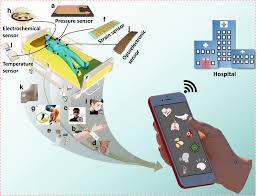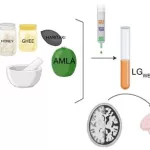In a major breakthrough in anti-aging research, a team of Korean scientists has identified a drug that shows promising potential to extend lifespan and alleviate age-related issues. The drug, known as IU1, has been found to enhance the body’s natural protein quality control systems, crucial mechanisms in maintaining healthy cellular function as we age.
Aging is an inevitable process linked to numerous health conditions. As researchers seek ways to slow aging and mitigate its harmful effects, one primary target has emerged—protein homeostasis, or “proteostasis.” Proteostasis involves maintaining the balance of protein production, folding, and degradation within cells, preventing the accumulation of damaged or misfolded proteins. However, as we age, these systems decline, leading to cellular stress and a host of age-related diseases.
The Role of Proteostasis in Aging
Protein quality control systems, such as proteasomes and autophagy, play a key role in maintaining proteostasis. Proteasomes break down faulty proteins, while autophagy recycles larger cellular structures, including protein aggregates. Over time, the efficiency of these systems diminishes, contributing to conditions such as Alzheimer’s, Parkinson’s, and other degenerative diseases.
A team of researchers from Chung-Ang University in South Korea, led by Professor Seogang Hyun, investigated how the drug IU1 affects these systems. The findings, published in the journal Autophagy on August 15, 2024, suggest that IU1 could be a game-changer in the fight against aging.
IU1: A Synergistic Approach to Aging
IU1 was originally known to enhance the activity of proteasomes, which led Professor Hyun’s team to explore its potential anti-aging effects. Using fruit flies (Drosophila) as a model, the researchers tested IU1’s impact on proteostasis. Since the aging process in fruit flies mimics key aspects of human aging, particularly in muscle deterioration, they served as an ideal test subject.
“Inhibiting the activity of ubiquitin specific peptidase 14 (USP14), a component of the proteasome complex, with IU1 enhanced both proteasome and autophagy activity,” said Professor Hyun. “We demonstrated that this synergistic mechanism could improve age-related muscle weakness in fruit flies and extend their lifespan.”
Remarkably, the research team observed similar results when testing the drug on human cells, adding weight to their findings. IU1’s ability to simultaneously boost proteasome and autophagy activity suggests that it can restore proteostasis, potentially slowing the aging process and improving the quality of life for older individuals.
Implications for Age-Related Diseases
These findings offer hope for future therapeutic developments targeting age-related diseases. “Reduced protein homeostasis is a major characteristic of degenerative diseases such as Alzheimer’s and Parkinson’s disease,” Professor Hyun explained. “The results of our study might lay the groundwork for the development of treatments for various age-related diseases.”
By protecting the body’s protein quality control systems, IU1 could revolutionize the approach to managing the effects of aging, offering an exciting prospect for extending both lifespan and healthspan—the length of time individuals remain healthy as they age.
Looking Ahead
This research marks a significant step forward in anti-aging science. As the team’s results are validated through further studies and clinical trials, IU1 could pave the way for novel therapies aimed at enhancing the body’s natural defenses against the deterioration associated with aging.
For now, scientists remain optimistic that the insights gained from this study will inspire new treatments that not only extend life but also improve overall well-being in the later stages of life.
Reference
Lim, J. J., Noh, S., Kang, W., Hyun, B., Lee, B.-H., & Hyun, S. (2024). Pharmacological inhibition of USP14 delays proteostasis-associated aging in a proteasome-dependent but foxo-independent manner. Autophagy. DOI: 10.1080/15548627.2024.2389607











